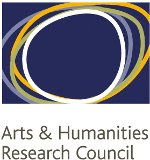
Award-winning author Aminatta Forna will be reading from her new book The Memory of Love (Bloomsbury 2010) as part of the Pinter Centre’s ongoing AHRC-funded project ‘Beyond the Linear Narrative’.
The reading will be followed by a chance to discuss the work with the author. Wine and refreshments will be served.
April 28th, 5:30pm, Senior Common Room, Goldsmiths, University of London
About The Memory of Love
“Delivering to us a common centre, no matter where we happen to have been born, Aminatta Forna tackles those great human experiences of love and war, of friendship, rivalry, of death and triumphant survival. Often darkly funny, written with gritty realism and tenderness, The Memory of Love is a profoundly affecting work” KIRAN DESAI, winner of the Booker Prize
“A subtle and complex exploration, daring in depth and scope, of both the psyche of a war and the attractions which it holds for an outsider. Forna is a writer of great talent who does not shy from tackling the toughest questions about why humans do the things they do: from the smallest acts of betrayal to the greatest acts of love.” MONICA ALI
About the author
Aminatta Forna was born in Scotland and raised in West Africa. Her first book The Devil that Danced on the Water was runner-up for the Samuel Johnson Prize 2003. Her novel Ancestor Stones was winner of the 2008 Hurston Wright Legacy award, nominated for the International IMPAC Award and selected by the Washington Post as one of the most important books of 2006. In 2007 Vanity Fair named Aminatta as one of Africa’s most promising new writers. Aminatta has also written for magazines and newspapers, radio and television, and presented television documentaries on Africa’s history and art. Aminatta Forna lives in London with her husband.



